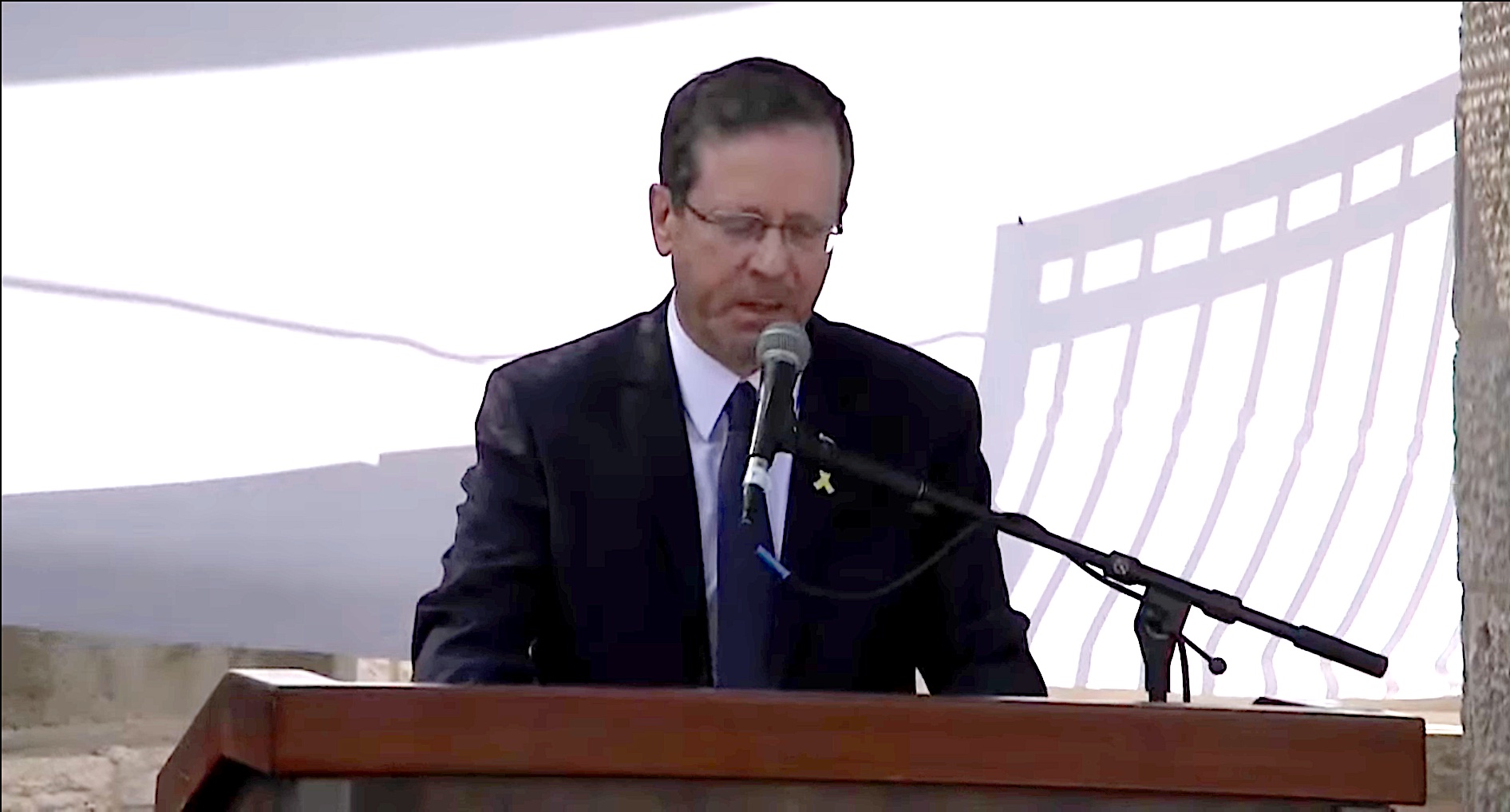Israeli President Isaac Herzog apologized for Israel’s failure to free the captives held by Hamas in his comments at the funeral of Hersh Goldberg-Polin, the 23-year-old American-Israeli hostage murdered in Gaza this week.
Herzog was the first speaker, preceding Goldberg-Polin’s parents, Rachel Goldberg-Polin and Jon Polin. He spoke first in Hebrew and then in English, in a nod to the many English speakers among the mourners, and the broad international interest in the funeral of a young man who had become a symbol of Israel’s hostage crisis thanks to the advocacy of his family.
In both languages, Herzog used the vocabulary of apology — “slicha” in Hebrew, “sorry” in English.
“As a father and as the president of the State of Israel, I want to say how sorry I am, how sorry I am that we didn’t protect Hersh on that dark day, how sorry I am that we failed to bring him home,” he said in his English comments.
“In his life and in his death, Hersh has touched all of humanity deeply. He has shaped our world and woven his essence of light and love into the story of the Jewish people and into our human story,” he added.
In Hebrew, he had offered more expansive comments, asking for forgiveness directly from Hersh and his family.
“I apologize on behalf of the State of Israel, that we failed to protect you in the terrible disaster of Oct. 7, that we failed to bring you home safely. I apologize that the country you immigrated to at the age of 7, wrapped in the Israeli flag, could not keep you safe,” Herzog said.
He added, “Rachel, Jon, dear Leebie and Orly, grandparents, and the whole family – I ask for your forgiveness, forgiveness that we could not bring Hersh back home alive.”
Herzog also spoke in Hebrew with more force about the roughly 100 hostages still known to be in Gaza — and in acknowledging the breach of the state’s responsibilities in allowing them to be taken and kept there.
“Now – the State of Israel has an urgent and immediate task,” he said. “Decision-makers must do everything possible, with determination and courage, to save those who can still be saved, and to bring back all our sons and daughters, our brothers and sisters.”
He added, “This is not a political goal, and it must not become a political dispute. It is a supreme moral, Jewish, and human duty of the State of Israel to its citizens.We did not fulfill this duty. And now – we have a sacred and shared obligation, to stand up and bring them all back to their homeland.”
The remarks were a nod to the new wave of anger within Israeli society that has opened since the discovery of the bodies of Goldberg-Polin and five other hostages this week. Protest has spread over the government’s failure to bring the hostages home since they were taken during Hamas’ Oct. 7 invasion of southern Israel. Prime Minister Benjamin Netanyahu, the main target of the anger over the perception that he has blocked ceasefire proposals that Israeli security and military leaders endorse, apologized directly to the family of one of those killed on Sunday, marking his first public apology to any family affected by Oct. 7. But other families declined to take his calls.
JTA has documented Jewish history in real-time for over a century. Keep our journalism strong by joining us in supporting independent, award-winning reporting.






